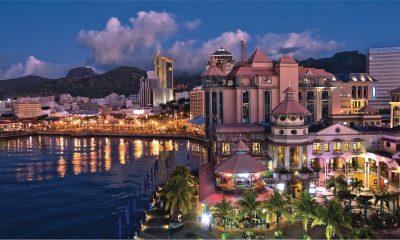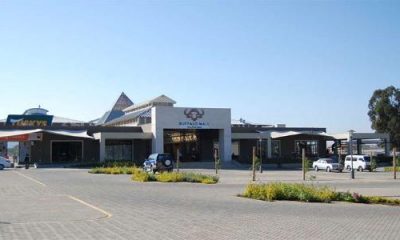Education
Mauritius set to turn into Africa’s Education Hub
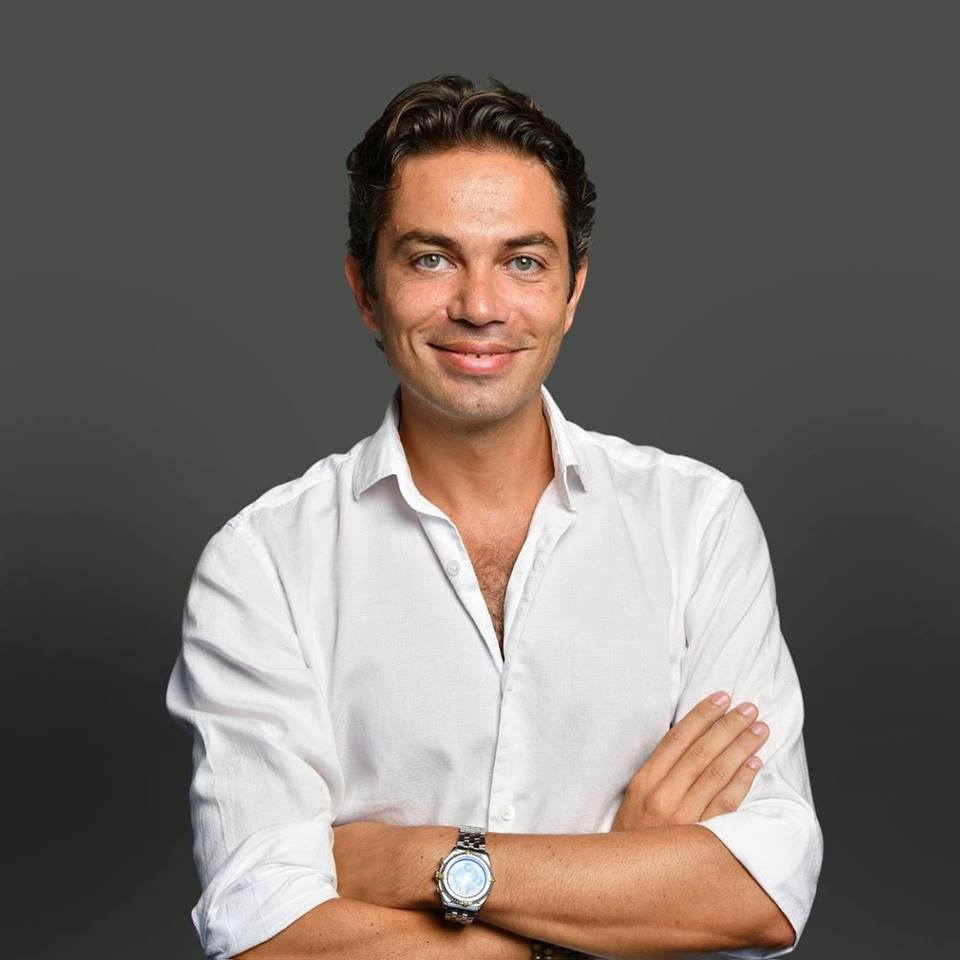
Nicolas Goldstein, Co-founder of Talenteum.Africa
Mauritius will soon be the top destination in Africa for ready to work graduates.
As interest for quality advanced education in Africa rises, the expression “advanced education center point” has been tossed around, searching for takers over the landmass. The island of Mauritius is, for some, the leader. Mauritius has reliably been attempting to position itself all things considered a “center”: a junction for tertiary training, drawing in both excellent worldwide scholastic establishments and top-level understudies from everywhere throughout the world. Instruction is as of now a top government need in Mauritius, and the island positions first in UNESCO’s rundown of African nations for tertiary training enrollment.
Add to that it’s a land area only a couple of miles off the east shore of Madagascar, and the island’s social and chronicled connections to Asia and Europe, and Mauritius appears the undeniable decision to play host to another brand of worldwide, moderate, world-class advanced education for the landmass.
Developing quantities of potential understudies on the African mainland are another motivation to support the Mauritian advanced education venture. The interest in quality training in African nations has shot up in the course of recent years, generally attributable to the way that the African working class has significantly increased in size over this time. Spectators have particularly noticed a checked ascent in advanced education action in sub-Saharan Africa, with SADC understudies being the most portable on the planet.
Albeit about portion of these understudies goes to South Africa for studies, the draw of Mauritius has been difficult to disregard throughout the most recent five years. As of now, foundations like Middlesex University, the University of Aberystwyth, and the University of Wolverhampton in the UK have set up Mauritian branch grounds. Their point: offer quality UK degrees to understudies on the African market at reasonable costs. All the more as of late, Uniciti education Hub, the education arm of the Medine Group, has made a space for European organizations to set up in Mauritius. These incorporate the Vatel International Business School of Hotel and Tourism Management, Ecole Centrale de Nantes and SUPInfo International University.
Mauritian foundations have likewise cooperated with global granting bodies to convey European degrees: the Mauritius Chamber of Commerce and Industry’s Business School offers projects granted by the Institutd’Administration des Entreprises de Poitiers, and the Analysis Institute of Management offers an Executive MBA granted by the Universite Paris Dauphine and IAE Paris 1Panthéon-Sorbonne. Nearby understudies at these foundations still far dwarf internationals. The story, however, is diverse for the most up to date player on the Mauritian tertiary instruction scene. African Leadership university (ALU), situated in Beau Plan, has just pulled in 180 understudies from 30 African nations for its first partner.
ALU and other global tertiary instruction establishments in Mauritius have a reasonable order: supply the provincial market with very talented youthful people with transferable skills, energy for business enterprise and a capacity to adjust to the quickly changing requests of the African market. Extreme interest projects incorporate courses in the executives, business, and IT, and pathways to the contracted callings (lawful, bookkeeping and designing). Drug and dentistry projects are presently picking up prominence while projects, for example, cordiality and the travel industry are long-lasting high rankers on the rundown of expert preparing alternatives.
Also Read Prioritizing A Traditionally Underserved Somaliland Population Over Profit – Adan Abbey
In any case, the rivalry is unpleasant for the heaven island. With different nations competing for the position, Mauritius isn’t an obvious choice for Africa’s driving advanced education goal. With more prominent receptiveness with respect to some African nations, there is developing enthusiasm with respect to global easily recognized names to set up on the landmass, like Carnegie Mellon University in Pittsburgh whose College of Engineering as of late set up its first abroad area in Kigali, Rwanda.
Mauritius’ agreeable financial rankings in African lists and the cosmopolitanism of its general public which appears to easily mix African in with Asian and European, are a portion of its key selling focuses. Political security, a populace bilingual in English and French, and its engaging quality to remote speculators still work to support its. At last, be that as it may, what will genuinely decide understudies’ decision of an advanced education goal stays quality. And keeping in mind that banding together with a portion of the huge names on the universal scholarly scene surely increases the value of projects, the substantial characteristic of value that understudies seek to is employability.
Considerably more than having the extravagant degree from the world-presumed college, understudies will in general pick the projects with solid connect to industry and enterprising chance – those which make them the most appealing and valuable hands-on market. What’s more, this is the bearing where all potential advanced education center points, including Mauritius, should now begin outfitting themselves.
Mauritius becoming a top destination in Africa as an Education Hub is one of the many reasons why Talenteum set its headquarters in Mauritius. At Talenteum we source and recruit the most Talented youth on the continent and have them work remotely for European Companies.
By Nicolas Goldstein, Co-founder of Talenteum.Africa
Education
BAO Exclusive with Dr. Musa Akinyemi, Rector of Crown Maritime Academy
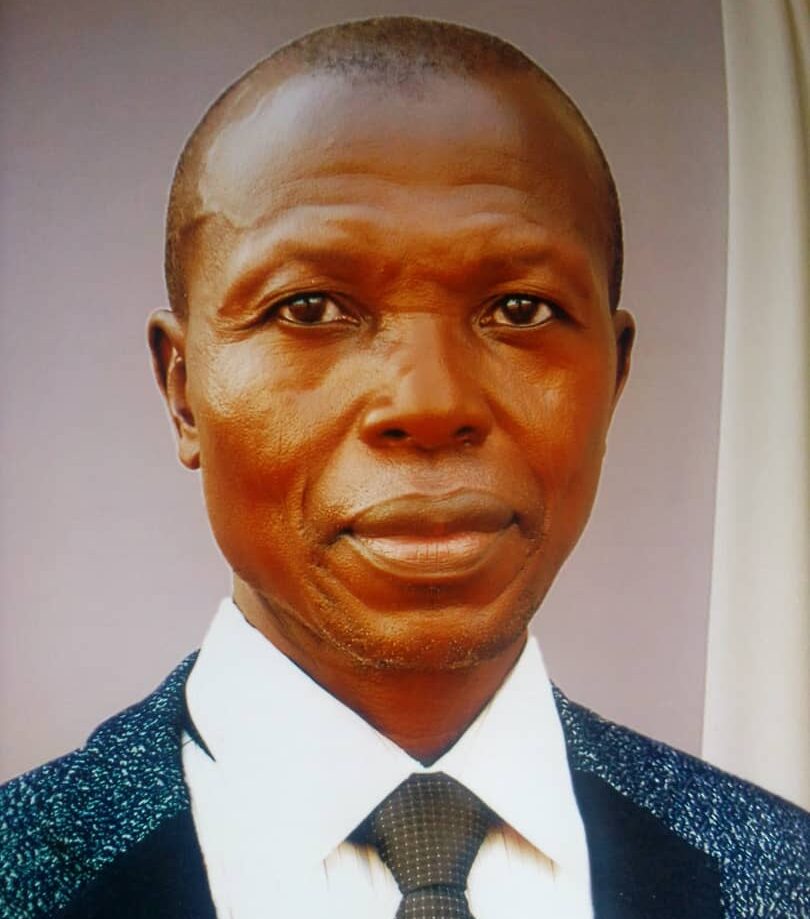
Dr. Musa Akinyemi is an experienced Rector with a demonstrated history of working in the maritime industry. He is currently the Rector/CEO of Crown Maritime Academy, CMA a go-to maritime training institution. In this interview with Alaba Ayinuola of Business Africa Online (BAO), Dr. Musa shares more insights on the maritime training institution, its certifications, milestones and much more. Excerpt.
Alaba: Could please tell us about Crown Maritime Academy and your role?
Dr. Musa: Crown Maritime Academy, CMA was muted as an experiment in 2011. That was 10 years after my return from exile in Cote d’Ivoire having suffered insecurity as Gen. Sani Abacha deprived me of my Federal Government employment without any reason in 1996. Between 2011 and 2014, just within 3 years of existence, the Academy was recognized as a Centre of Academic Excellence by the Commonwealth in London and Listed in the 2014/2015 Edition of the Commonwealth Education Ministers Publication. In addition, Crown Maritime Academy, CMA was also featured Online by the Commonwealth Education Partnerships (CEP) of London.
My role from the onset was strategically collapsed between Lecturing and Administering. Thus, I chose to be addressed with the status of Registrar. Yet, I had to decide and also design courses to offer as well as which curriculum to evolve or develop. Therefore, I added the CEO title, even as Registrar. That made me search for a seasoned and very resourceful postgraduate fellow who became the Rector.
Alaba: What sets Crown Maritime Academy apart from other Maritime Academy and how is it positioned to be the go-to institution?
Dr. Musa: This Academy has been set apart uniquely, abinitio, because we envisioned and delivered an Academy with a qualitative, affordable and available platform capable of achieving pan-Africanism, especially the African youth emancipation.
Already, we have commanded progressive credibility and stable camaraderie with fellow academies and universities locally and in the diaspora. It is expected that continuity, creativity and just-in-time delivery of our programmes would position Crown Maritime Academy, CMA as a go-to maritime training institution.
Alaba: Please tell us about the certifications offered, accreditation and opportunities that come after completion?
Dr. Musa: The Academy started with Diploma award for 2 years programme, at the end of which, after some 1 year practice in the industry, awardees could return to do the Advanced Diploma. Indeed, it was a sound and recommendable beginning. What we are doing now is to fully blend with the Federal Ministry of Education’s regulatory framework so as to start the National Innovative Diploma (NID) or National Diploma (ND) in our own name.
Many of our graduates are already engaged in the military, para-military, port operations and the like, while a few others have set-up their own businesses.
Alaba: Can you highlights some of your significant milestones and challenges?
Dr. Musa: Crown Maritime Academy, CMA is at the forefront of sustainable maritime education and training in Nigeria. In 2021, our senior management team was specifically selected and sponsored to conduct a Facility Tour of the Federal Government-owned Maritime Academy of Nigeria (MAN) at Oron, Akwa Ibom State. The only private maritime training institution in Nigeria to be so recognized.
Don’t forget also that we produced the Best-Graduated Shipping Management Student in Nigeria in 2017/2018. In 2018/2019, we repeated the academic feat by also producing the Best-Graduated Shipping Management Student in Nigeria. We are equally among those leading in Transport and Logistics Management, as we produced the Best-Graduated in this specialization in Nigeria in the 2020/2021 session.
Meanwhile, our challenges remain, namely, the harsh and unsupported maritime domain plus the capital intensive nature of providing tertiary education.
Alaba: What is your overall assessment of the entire situation of Nigerian maritime training and capacity building?
Dr. Musa: We are still operating at 50 % capacity. Most sincerely though, if not for the resuscitation of the MAN Oron by the current Rector, Rtd. Commodore Effedua, the capacity could have been far lower.
So, let it be known that with the MAN Oron bouncing-back, the Federal Government would get the graduating cadets the much-needed training vessels and, as a matter of urgency, float an ocean-going fleet to employ them. Of course, training should, from this achievement, become a life-long development.
Alaba: What are CMA priorities/plans for the year and where do you see the academy in the next 5 years?
Dr. Musa: Our current priorities include moving to our permanent site as well as to smoothly and successfully partner with the Federal authorities in respect of educational qualifications, regulations, standards, control and compliance.
I am very confident that foreign students would regularly seek admission and come to study at Crown Maritime Academy, CMA in Nigeria.
Alaba: Your advice for students and professionals in or aspiring to go into the maritime sector?
Dr. Musa: The first advice from me is that they should not fail to understand the importance of triple “T” or T raised to power 3. The first T is Time, they should not be looking for how to cut corners or abuse the process. Let them give all the time needed to study! The second T is for Talent. This means that they should not come empty and go back empty, they should be loaded with effervescent intellectual deposits!! Finally, the third T, which stands for Trust. This is to say that you can not excel and sustain the lucrative life of a shipping professional if colleagues and the stakeholders can not trust you.
Education
The Space Prize Foundation and UNESCO partners to propel Space Education across Africa

The Space Prize Foundation announces the launch of its partnership with UNESCO, aimed at democratizing access to space education and inspiring a new generation of female scientists and engineers in Africa. Despite sixty years of space exploration, women are grossly underrepresented in the space industry, making this initiative potentially transformative on the educational landscape and, ultimately, the future of space exploration.
Starting in Rwanda, this visionary partnership will unfold over the next several months as both organizations meticulously plan the framework for the implementation of the Space Prize Foundation’s Space Education Curriculum. The initiative is designed to equip teachers across Africa with the tools and resources they need to empower young minds, particularly young women, to pursue careers in scientific and engineering fields. The open source curriculum is the first of its kind and was developed by leading science teachers across the United States of America.
Key elements of this initiative include:
Survey for Teacher Development: The Space Prize Foundation will conduct a comprehensive survey to identify the specific needs and levels of development required by teachers. The survey will delve into teaching styles, current practices in space education, and the resources available to educators.
Workshops for Curriculum Implementation and Teacher Empowerment: UNESCO and the Rwanda National Commission for UNESCO will identify participating teachers. The first workshop will provide participating teachers with an introduction to the Space Education Curriculum. A leading expert in space education will guide teachers in customizing the curriculum for their students and schools. The second workshop will be dedicated to Q&A, ensuring teachers have time to digest the curriculum.
Curriculum Reception: Following the initial workshops, teachers will be encouraged to present the tailored curriculum to their students at least twice a month. Feedback from this implementation will be reviewed in two 90-minute workshops to discuss the curriculum’s reception.
Structured Roll-out in Q2 2024: The formal launch of the curriculum is scheduled for Q2 2024, during which the Space Prize Foundation, UNESCO and participating teachers will design the cadence of classes and schedule monthly review sessions. This flexible approach aims to cater to the unique needs and capacities of different educational settings.
Impact Assessment: UNESCO will design an impact survey to measure the effectiveness of the Space Education Curriculum.
By commencing this journey in Rwanda, the Space Prize Foundation and UNESCO are laying the groundwork for a transformative educational initiative that will resonate across the continent. This partnership embodies a commitment to fostering the next generation of space enthusiasts, driving innovation, and building a brighter future for humanity.
Education
Ubongo Celebrates 10 Years of Transforming Education in Africa

Ubongo, Africa’s leading children’s edutainment and media company, is excited to announce its 10-year anniversary, marking a decade of transforming education and empowering millions of children across the continent. With an impressive portfolio of educational programs including Akili and Me, Ubongo Kids, and the recent addition of the captivating new show Nuzo and Namia, Ubongo continues to set the standard in innovative learning experiences for kids.
Since its founding in July of 2013 in Dar es Salaam, Tanzania, Ubongo has been dedicated to providing fun, localized, and multi-platform educational content that helps children foster a lifelong love of learning. Through accessible technologies like TV, radio, and mobile phones, Ubongo has reached over 32 million families across Africa, making a significant impact on the continent’s education landscape. Independent research studies examining Ubongo’s programs have consistently revealed their profound impact, enhancing school readiness, improving learning outcomes, and fostering positive social and behavioral change among both children and their caregivers.
Over the past 10 years, Ubongo has grown from a small Tanzanian grassroots startup to a Pan-African non-profit organization and the market leader in African edutainment. Ubongo’s innovative and engaging edutainment programs empower kids with the knowledge and critical skills they need to change their lives and their communities for the better.
“We are thrilled to celebrate this incredible milestone of 10 years,” said Mwasi Wilmore, CEO of Ubongo. “It is a testament to the hard work, dedication, and passion of our team, partners, and supporters who have believed in our mission and contributed to our success. Together, we have made a significant impact on education in Africa, and we are committed to continuing our journey of transforming learning for generations to come.”
In commemoration of this significant milestone, Ubongo has arranged a special 10-year anniversary event in Dar es Salaam to celebrate the accomplishments and milestones achieved throughout the years. The event will feature inspiring speeches and captivating presentations showcasing the journey and impact of Ubongo’s edutainment programs.
“We invite all our partners, supporters, and stakeholders to join us in celebrating this significant milestone,” added Mwasi Wilmore. “Together, let us reflect on our journey, express our gratitude, and renew our commitment to providing quality education and transformative learning experiences for children in Africa.”
“As we look ahead to the next decade, we remain steadfast in our mission to reach even more children, leveraging the power of edutainment to unlock their potential and shape a brighter future for Africa,” added Mwasi Wilmore.
-

 Afripreneur3 days ago
Afripreneur3 days agoMeet Datari Ladejo, the digital strategist helping brands thrive in the digital economy
-

 Afripreneur10 hours ago
Afripreneur10 hours agoCreativity, Data, and Innovation: Tutu Adetunmbi’s Vision for Africa’s Marketing Future with Stamfordham
-
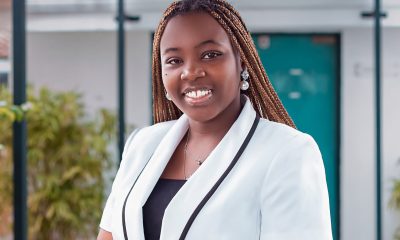
 Press Release1 day ago
Press Release1 day agoThe 234 Venture Vault Launches Tech Startups and Talents Hunt Across Nigerian Tertiary Institutions
-

 Afripreneur9 hours ago
Afripreneur9 hours agoMeet Nzinga B. Mboup, a Senegalese architect committed to climate-friendly construction for African cities




